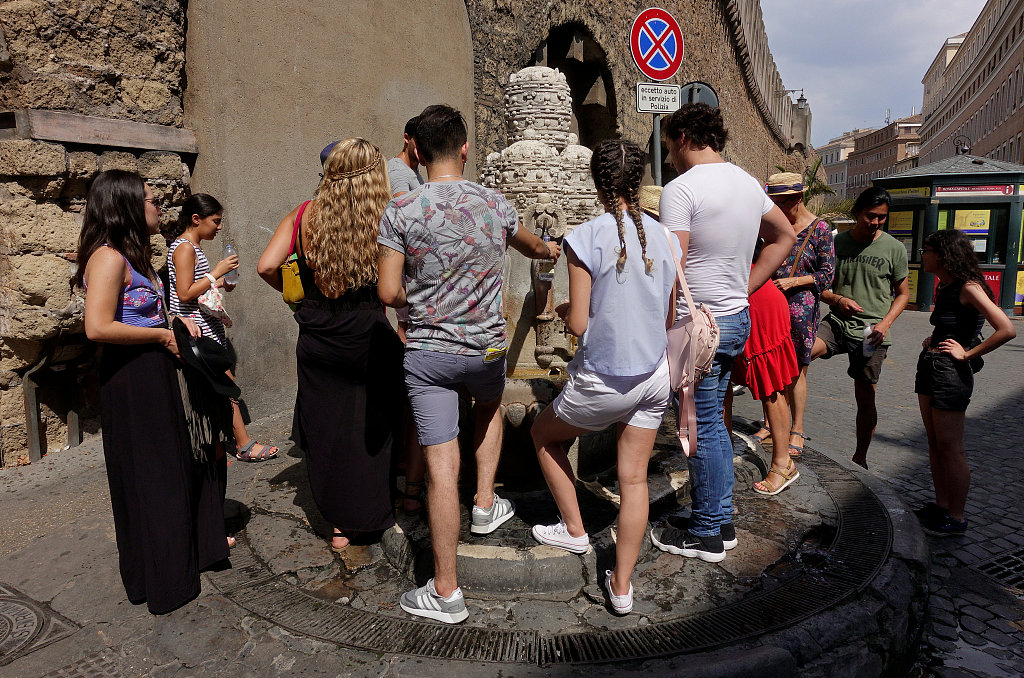ROME, July 30 (Xinhua) -- If heat waves in Italy continue to become more frequent and more intense, Italian cities will be forced to change the way they look at city planning, analysts said.

People get water at a public fountain as a temperature soars throughout the country, in Rome. (Photo: VCG)
Before recent decades, Italy could expect to experience a major heat wave approximately once every five years, according to Italian meteorologists. Now they occur almost every summer and twice already this summer.
The impact of the heat waves are more intense in big cities, where traffic, manufacturing, population density, and paved surfaces all combine to magnify the effect of hot weather.
The unusually hot weather is common across southern and central Europe, but large cities in Italy usually trail behind those in nearby countries in terms of adaptation.
"Italian cities will have to do more to adapt," Marta Pappalardo, an environmental science professor at the University of Pisa, told Xinhua, while emphasizing the need for cities to develop more green areas, plant more trees that produce shade and absorb heat, and manage water systems better.
"The more cement and pavement, the hotter a city becomes," Pappalardo said. "Poor heat adaptation strategies make cities more vulnerable."
According to Francesca Costabile, a researcher at Italy's Istituto di Scienze dell'Atmosfera e del Clima (Institute for Atmospheric and Climate Science), it is impossible to scientifically predict the climate in the future.
"We can say that human activity is having an impact on the climate, but we cannot be specific about what that impact will be in the future," Costabile said in an interview.
Research from the Inter-governmental Panel on Climate Change establishes a clear connection between the rising level of greenhouse gases in the atmosphere and the frequency and intensity of extreme weather events, such as the incremental heat waves in Italy.
Officials from the High Institute for Environmental Protection and Research, the technical wing of Italy's Ministry of Environment, acknowledged that summers are seeing more extreme weather.
"Whatever measure you use, it is clear the summers are becoming hotter," Franco Desiato, head of monitoring air quality and climatology for the institute, told Xinhua. "Last year was the hottest year on record overall, and this summer is only half over but it could surpass it."
Pappalardo said there are demographic trends complicating the problems with heat, including longer work hours and less vacation time for the average employees.
"Even when there was a heat wave in the past, workers had more vacation time and so it was more likely they would be away, at the seaside or in the mountains, where the heat was less intense," she said. "Now workers have less time off and less money to leave the city."
Despite the increased frequency and intensity of heat waves and trends that cause people to spend more time in cities, there is one positive trend: heat-related-deaths have dramatically decreased.
An estimated 12,000 people died in connection with a long and intense heat wave which hit Italy in 2003. In contrast, the dual heat waves affecting Italy in 2019 to date have only resulted in fewer than 20 deaths.
Among the factors behind the declining death toll are better precautionary communications and improved health care programs.


